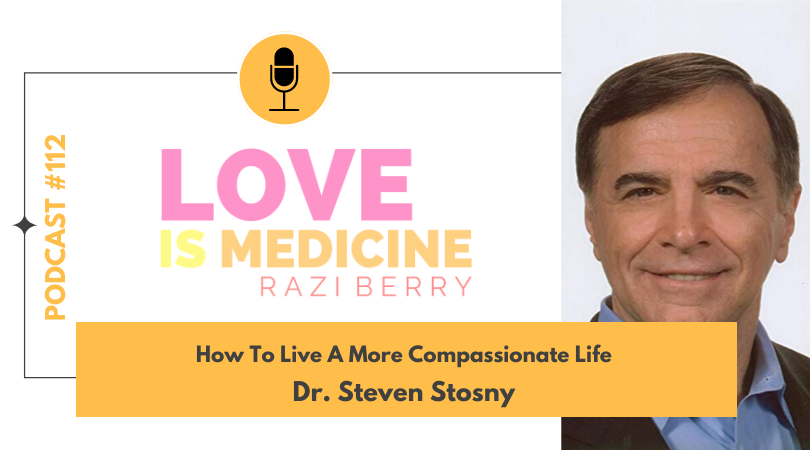Negative emotional habits can impact the way in which you see the world, experience relationships, and express yourself. While it may be something you or your partner is subconsciously adopting, it can have a serious impact on your ability to solve issues and cope with stress.
Or, listen on your favorite app: iTunes (Apple Podcasts) | Spotify | Stitcher | TuneIn | Android
This is why I have asked Dr. Steven Stosny to share with us his research in the power of compassion and emotional habits. An author of several books including How To Improve Your Marriage Without Talking About It and Love Without Hurt, Dr. Stosny is an expert in using the most profound part of your brain so that you can understand your stress and work to develop compassion as the cornerstone of your emotional blueprint.
Compassion gives you the endorphins you need to stop feeding off of anger and start understanding the negative reactivity in your relationships. Instead of letting your ‘toddler brain’ win by using blame, denial, or avoidance, Dr. Stosny is here to provide you with ways that you can improve, appreciate, connect or protect in order to make whatever situation you are in better.
By getting in touch with your core values you can learn to fall in love with your adult brain and in turn, spread kindness to those struggling with resentment. If you or someone you love is struggling with anger, resentment, and stress, Dr. Stonsy’s knowledge will be invaluable on your journey towards peace. If you are looking to prevent regret through compassion, this is the episode for you.
How are you working to be more compassionate to yourself and your loved ones? Share your story with us in the comments below.
In This Episode
- Why you default to your ‘toddler brain’ when you are stressed and what to do about it
- Understand gender difference in the way that we relate to each other in relationships
- How to use compassion to heal resentment, anger, and other negative emotions
- Discover the science behind why anger can be addictive and resentment can be contagious
- First steps that you can take if you or someone you love has an anger problem
Quotes
“If your emotional habits are bad, you are just seeing the world through a tunnel vision. Emotions are how we react to each other and how we know the world, so we better get them right!” (7:16)
“We do need to be happy on our own, but together we can make something better than what we can do on our own, and that’s harmony.” (10:43)
“Resentment becomes part of your defensive system, it becomes part of the way you negotiate your world. It’s more than just a feeling, it is a way of looking at life when it gets entrenched as it goes on. It’s worse than fear of change.” (31:09)
“When you are hurt or you are emotionally aroused, it is almost impossible to see other people’s perspectives. So in a relationship when the people are hurting each other, it gets harder and harder to see each other’s perspectives. And that’s not just true for emotional pain. If you have a headache, it is hard for you to sympathize with someone’s toothache, between your pain is seizing your whole conscious intention, that is what it is supposed to do… when you are hurt it is motivating you to do something about your hurt, so you can’t see the other persons hurt.” (35:41)
“When your self-value is lowered, you have to do something that makes you feel more valued, more loveable. Not more powerful. Because it’s not a power problem, its a value problem.” (41:29)
“Your only chance of getting the partner you most want to have is to be the partner you most want to be.” (50:04)
Links
Download the Free Core Value Workbook Here




